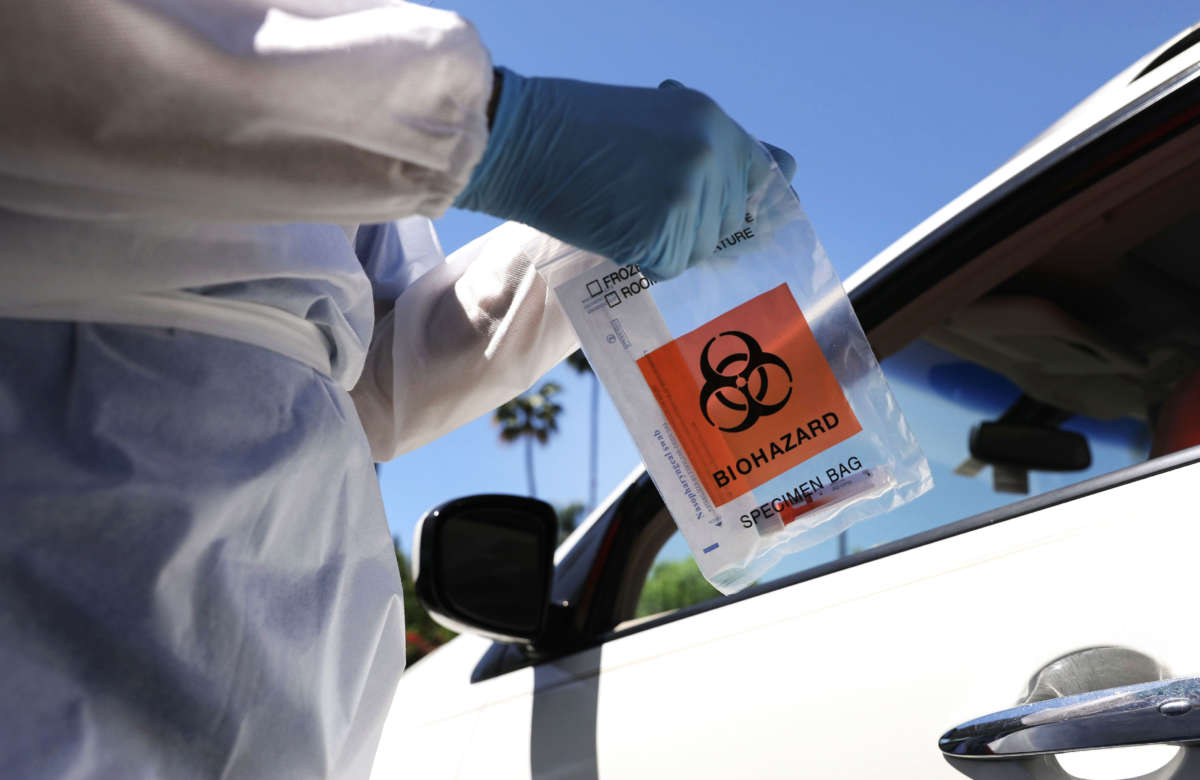The Centers for Disease Control and Prevention (CDC) quietly altered its guidelines on who should get tested for coronavirus, giving very little reasoning for the sudden change.
For the past several weeks, the CDC has encouraged individuals who had come into contact with others who had tested positive for COVID-19 to get tested themselves, even if they were not showing symptoms of the disease.
In an interview with ABC News last month, CDC Director Robert Redfield emphasized that Americans should get tested if they thought there was even a remote possibility of infection.
“Anyone who thinks they may be infected — independent of symptoms — should get a test,” he said.
But the CDC’s policy was updated this week, removing that concern as a reason why someone should seek a test. The Department of Health and Human Services (HHS) indicated the change came from an “emphasis on testing individuals for post clinical and/or public health reasons.”
“CDC recommends the decision to be tested should be one made in collaboration with public health officials or your health care provider based on individual circumstances and the status of community spread,” a statement from HHS said.
Although a statement from an HHS official suggested that the change had been made to “reflect current evidence and best public health practices,” the agency was not clear on what the new evidence was that necessitated creating new guidelines. Additionally, a separate health official within the federal government told CNN that the change came about due to pressure from the White House.
“It’s coming from the top down,” that individual said.
President Trump has indeed argued at various points this summer in favor of the need to reduce the volume of tests being conducted for coronavirus, wrongly asserting that higher testing numbers were leading to the perception that the disease was more prevalent than it really was.
“When you do testing to that extent, you’re going to find more people. You’re going to find more cases. So I said to my people, slow the testing down please,” Trump said at a rally in Tulsa, Oklahoma, in June, for example.
Many were alarmed by the sudden change this week in the CDC’s policy regarding testing. “This is potentially dangerous,” infectious disease physician Krutika Kuppalli said to The New York Times.
“You’re not looking for a lot of people who are potential spreaders of disease,” Kuppalli added. “I feel like this is going to make things worse.”
Coronavirus can spread from asymptomatic carriers of the disease to others, potentially leading to infections with serious symptoms requiring hospitalization. The CDC estimates that 40 percent of individuals who have contracted COVID-19 are asymptomatic, and that individuals exhibiting no signs of the disease have a 75 percent chance of spreading it to someone else.
As of Wednesday afternoon, more than 5.9 million cases of coronavirus have been identified since the start of the pandemic in the U.S., with nearly 183,000 Americans having died from the disease so far.
Media that fights fascism
Truthout is funded almost entirely by readers — that’s why we can speak truth to power and cut against the mainstream narrative. But independent journalists at Truthout face mounting political repression under Trump.
We rely on your support to survive McCarthyist censorship. Please make a tax-deductible one-time or monthly donation.
